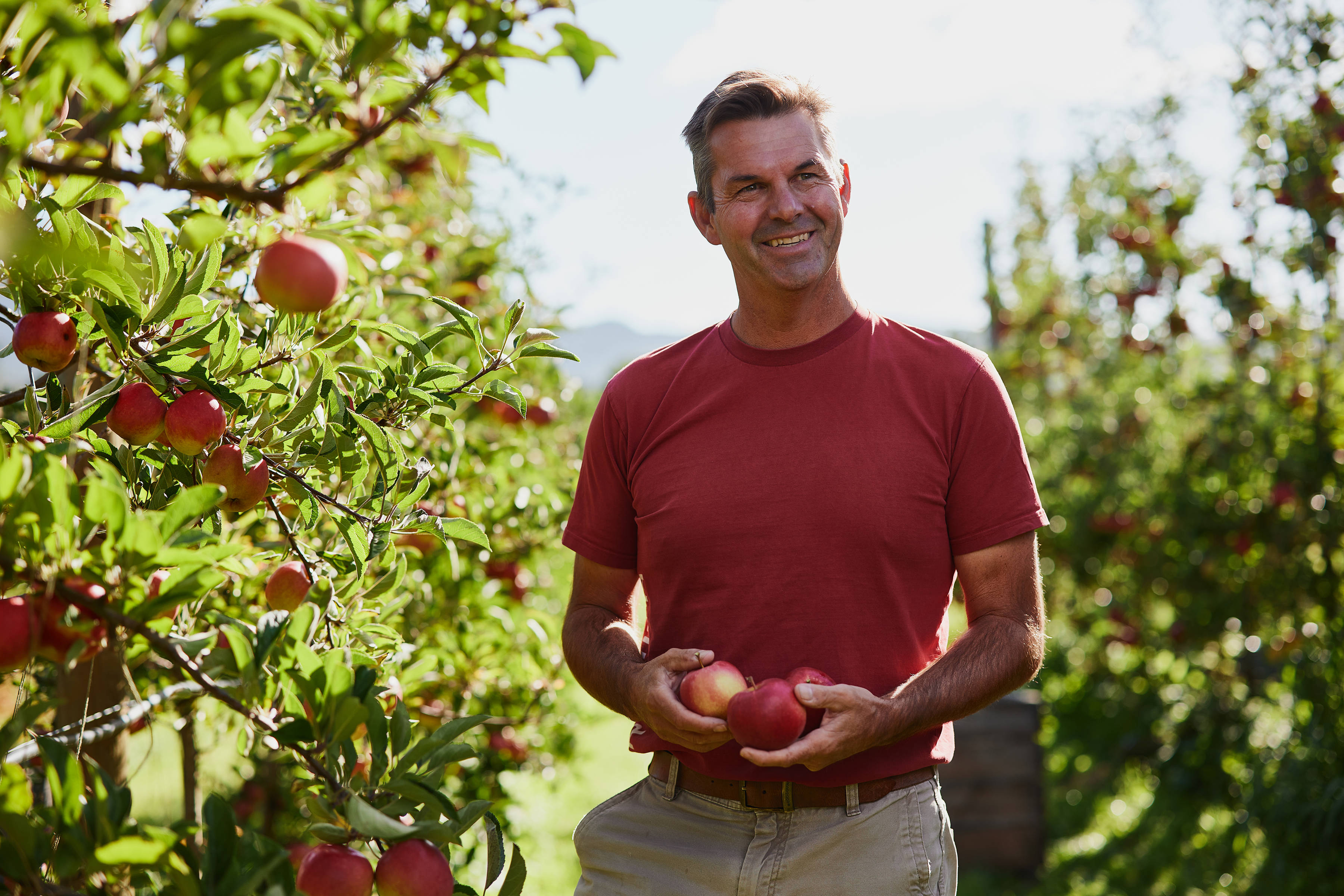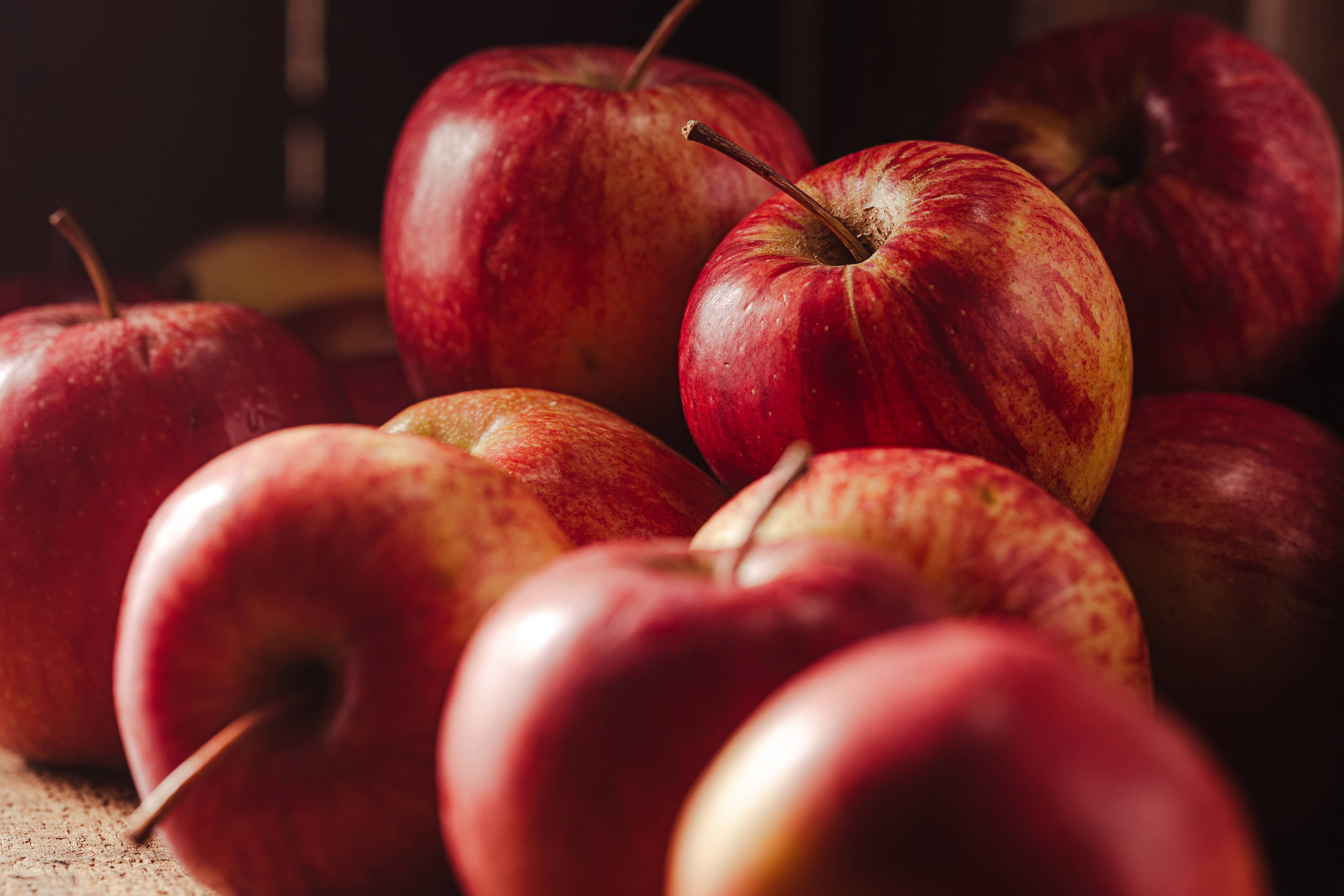
Andrew Smith of R&R Smith
Read more

Tasmania grows apples that are full of natural flavour and crisp to the bite. For many decades it was known as the Apple Isle.
Tasmanians have been growing apples in commercial quantities for 170 years. This long term commitment has been handed down within families across the generations, with the sixth generation of some families still growing apples.
While apple exports from Tasmania occurred throughout the 1800s, it was during the 1920–30s that exports expanded and large volumes were exported to the United Kingdom and Europe.
Today the industry is more focused on the Australian domestic market. However, it maintains its market access to a number of global markets particularly in Asia.
Tasmania has a reputation for growing beautifully fresh crisp apples particularly red varieties. Cool climatic conditions, clean water and nurtured soils enable sweet, crisp fruit to develop slowly. This means the fruit stores particularly well.
As an island, and with strict quarantine controls, reduced pest and disease pressure means low level use of agri-chemicals.
Some 8% of all apples sold in Australia are now grown organically, with demand growing at around 20% per year. Tasmania is home to one of the largest organic apple producers in Australia.
February–May
Apples are harvested in these months but available year round
Royal Gala, Smitten®, Golden Delicious, Modi®, Pink Lady®, Granny Smith, Jazz™, Envy™, Kanzi®, Rubigold® and Tiger Fuji (the latter two being varieties unique to Tasmania)
29,523MT
127MT
Trade data sources Australian Horticulture Statistics Handbook 2022/23, Fresh Intelligence Consulting and Fruit Growers Tasmania
Being a remote island surrounded by water and aided by a robust biosecurity system, Tasmania remains free from many plant-related pests and diseases including fire blight, Queensland fruit fly and Mediterranean fruit fly. This freedom means our produce can be exported with minimal, if any, phytosanitary treatment.
Apples are grown in many regions of the state including the Central North West, Coal Valley, Derwent Valley, Huon Valley and Tamar Valley.
“The thing I enjoy most about being a grower is producing healthy fruit out of nothing more than sunlight, water and love.”
Tasmania’s relative pest free status offers trade opportunities for importing countries seeking access to Tasmanian grown produce.
This information is extracted from the Department of Agriculture Fisheries and Forestry’s Manual of Importing Country Requirements which is frequently updated. Please validate this information before proceeding further.
The importing country has no phytosanitary restrictions for entry into the market.
Open to Tasmania, without requiring any phytosanitary treatment.
Open to Tasmania but requires some phytosanitary treatment.
No arrangements have been developed to make trade between the two countries possible, or trade is currently not allowed.
Through the generations our growers feel the pulse of the seasons and heartbeat of this land. They understand what thrives here — they take the time to grow produce with care. Meet some of our passionate, committed and knowledgeable Tasmanian growers…
Submit your interest and we will share your details with Tasmanian growers.